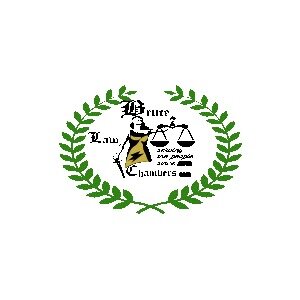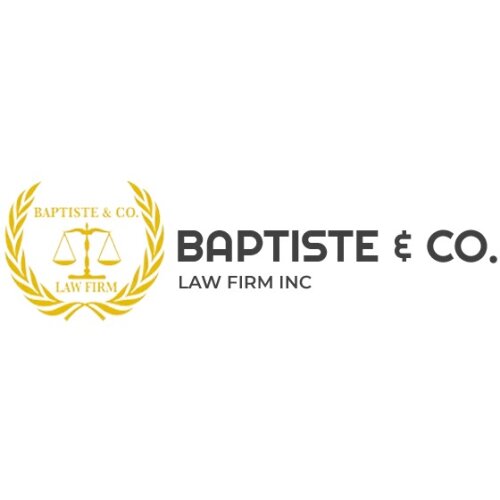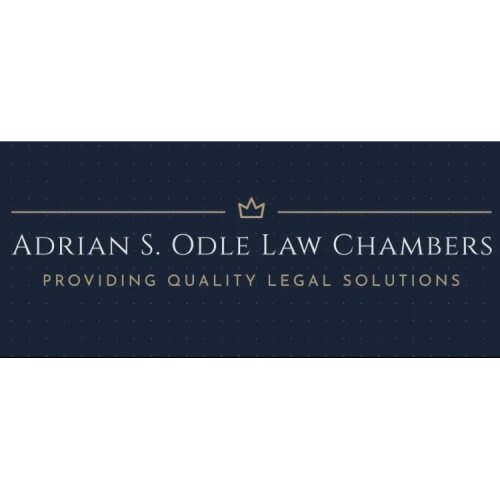Best Nonprofit & Charitable Organizations Lawyers in Saint Vincent and the Grenadines
Share your needs with us, get contacted by law firms.
Free. Takes 2 min.
Or refine your search by selecting a city:
List of the best lawyers in Saint Vincent and the Grenadines
About Nonprofit & Charitable Organizations Law in Saint Vincent and the Grenadines
Nonprofit and charitable organizations in Saint Vincent and the Grenadines play a vital role in the community by addressing various social, educational, and environmental needs. These organizations operate not to make a profit but to further a social cause. The legal framework governing these entities in Saint Vincent and the Grenadines ensures they operate within designated guidelines to benefit the public while maintaining compliance with local laws.
The laws oversee the formation, management, and dissolution of these organizations, ensuring they uphold transparency, accountability, and integrity. Entities from small community groups to international NGOs must navigate these regulations to maintain their status and operate effectively.
Why You May Need a Lawyer
There are several situations in which individuals or organizations may require legal assistance regarding nonprofit and charitable organizations:
- Incorporation and Registration: Establishing a nonprofit involves navigating complex legal requirements. A lawyer can streamline this process.
- Compliance and Reporting: Nonprofits must adhere to specific reporting and taxation requirements. Legal advice can help ensure compliance to avoid penalties.
- Bylaws and Governance: Drafting bylaws and establishing governance policies require legal expertise to ensure they meet legal standards and the organization’s objectives.
- Contractual Agreements: Legal review of contracts related to funding, partnerships, or employment can safeguard the organization's interests.
- Dispute Resolution: In cases where disputes arise within the organization or with external parties, legal support can facilitate resolution.
- Tax-Exempt Status: Applying for and maintaining tax-exempt status involves understanding complex tax laws.
Local Laws Overview
The legal landscape for nonprofit and charitable organizations in Saint Vincent and the Grenadines is defined by several key legislations and regulations:
- Companies Act: Governs the registration and operation of nonprofit companies.
- Charities Act: Regulates charities, including provisions for registration, management, and reporting obligations.
- Income Tax Act: Contains provisions relevant to the taxation and financial transparency of nonprofit entities.
- Non-Governmental Organizations Act: Provides guidelines specific to the operation and regulation of NGOs.
Understanding these laws is crucial for compliance and to ensure that a nonprofit entity can focus on its mission without legal setbacks.
Frequently Asked Questions
What constitutes a nonprofit organization in Saint Vincent and the Grenadines?
A nonprofit organization is an entity that operates for public or social benefit rather than generating profit for its owners or shareholders.
How do I register a nonprofit organization?
Registration involves preparing necessary documents such as articles of incorporation and bylaws, followed by application to the Companies Division.
Are there tax benefits available for nonprofit organizations?
Yes, tax exemptions are available, but organizations must apply and meet specific requirements outlined under the Income Tax Act.
What are the reporting requirements for charities?
Charities are required to submit annual reports, financial statements, and any other documentation as specified in the Charities Act.
Can a foreign NGO operate in Saint Vincent and the Grenadines?
Yes, foreign NGOs can operate but must comply with local registration requirements and any relevant regulations.
How can a nonprofit avoid conflicts of interest?
Maintaining a strong governance framework with clear policies and procedures can help mitigate conflicts of interest.
What is the role of the board of directors in a nonprofit?
The board of directors is responsible for strategic oversight, ensuring the organization meets its goals while maintaining legal and ethical standards.
Can a nonprofit engage in commercial activities?
Nonprofits may engage in commercial activities if they are related to their mission and profits are reinvested into the organization.
How can an organization dissolve if necessary?
Dissolution involves legal steps, including notifying the registrar, settling debts, and distributing remaining assets per organizational bylaws or law.
What protections are available for donors?
Transparency and accountability laws protect donors, requiring organizations to use funds as intended and report financial activities accurately.
Additional Resources
Here are some resources that can be helpful for anyone seeking further information or assistance related to nonprofit organizations:
- Companies Division: For registration and compliance details.
- Inland Revenue Department: Clarification on tax-exempt status and reporting requirements.
- Ministry of Legal Affairs: Provides legal frameworks and updates on related laws.
- Local Nonprofit Associations: Offer support, resources, and advocacy for the nonprofit sector.
Next Steps
If you require legal assistance with your nonprofit or charitable organization in Saint Vincent and the Grenadines, consider taking the following steps:
- Research and Identify: Identify the specific legal needs or challenges your organization faces.
- Consult a Lawyer: Approach a lawyer who specializes in nonprofit law to gain insights specific to your situation.
- Prepare Documentation: Gather and organize all relevant documents for a thorough legal review.
- Follow Up: Work closely with your legal advisor to implement their recommendations and ensure ongoing compliance and efficiency in operations.
By taking these steps, you can help ensure that your organization operates smoothly and within the legal framework, allowing it to focus on benefiting the community it serves.
Lawzana helps you find the best lawyers and law firms in Saint Vincent and the Grenadines through a curated and pre-screened list of qualified legal professionals. Our platform offers rankings and detailed profiles of attorneys and law firms, allowing you to compare based on practice areas, including Nonprofit & Charitable Organizations, experience, and client feedback.
Each profile includes a description of the firm's areas of practice, client reviews, team members and partners, year of establishment, spoken languages, office locations, contact information, social media presence, and any published articles or resources. Most firms on our platform speak English and are experienced in both local and international legal matters.
Get a quote from top-rated law firms in Saint Vincent and the Grenadines — quickly, securely, and without unnecessary hassle.
Disclaimer:
The information provided on this page is for general informational purposes only and does not constitute legal advice. While we strive to ensure the accuracy and relevance of the content, legal information may change over time, and interpretations of the law can vary. You should always consult with a qualified legal professional for advice specific to your situation.
We disclaim all liability for actions taken or not taken based on the content of this page. If you believe any information is incorrect or outdated, please contact us, and we will review and update it where appropriate.
Browse nonprofit & charitable organizations law firms by city in Saint Vincent and the Grenadines
Refine your search by selecting a city.











